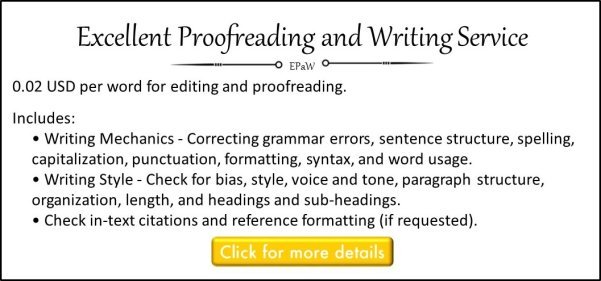Academic and Professional Writing
Each different genre of writing has its own styles and conventions. Academic and professional writing is no different.
Professional and academic writing includes writing by people who need to communicate academic, professional and technical information. It’s generally written for people with a similar level of education and who have knowledge of at least the basic background information relating to the area.

It includes various different types of documents such as:
Like all non-fiction writing, academic and professional writing is about the clear and concise communication of information. You're writing to tell your audience some information. The information is important and not the language you use to say it. The language should be invisible. The reader should only remember the information.
For the language to be invisible to the reader, it has to be perfect and easy to read.
Any mistakes in the spelling or grammar will distract the reader so that they’re looking at the words rather than the contents. The same with poorly chosen words; anything that doesn’t sound right to the reader, when they’re reading, will distract them as they’ve to stop, just momentarily, and think about the word used.
So while the language isn’t important (the contents are) if it isn’t perfect it’ll distract the reader.
One way you can help to make sure that your language doesn’t distract the reader is to follow the norms relating to the style and format that are found in professional and academic documents.
No matter what type of professional and academic writing you’re doing:
you’ll need to follow the styles and formats associated with them.
This'll most commonly be an impersonal style using the passive voice. An impersonal style also includes writing with objectivity, clarity, formality and hedging what you say. While you’ll also have to consider the words that you use, try to avoid misused words, wordiness or clichés in you writing.
Particularly, if you’re writing academically or scientifically you might need to reference the sources of information, that you use in your writing, by either quoting, paraphrasing or summarizing them. If you don’t cite them properly, with an inline citation and full reference in a reference section, you could be accused of plagiarism.
Once you’ve written your document you’ll need to make sure that the language used is correct and free from mistakes. You can do this by proofreading your own document.There are pages with proofreading tips and techniques in the proofreading section.

If you’d like me to proofread your document please look at the page about my proofreading service. The page about me contains information about my experience of academic and professional writing.

Return to Academic Writing from Academic and Professional Writing
Return to Excellent Proofreading and Writing Homepage from Academic and Professional Writing



By Jolyon Dodgson, copyright © 2011-2020.
Excellent-Proofreading-and-Writing.com - Proofreading and writing help for excellent first impressions.





New! Comments
Have your say about what you just read! Leave me a comment in the box below.